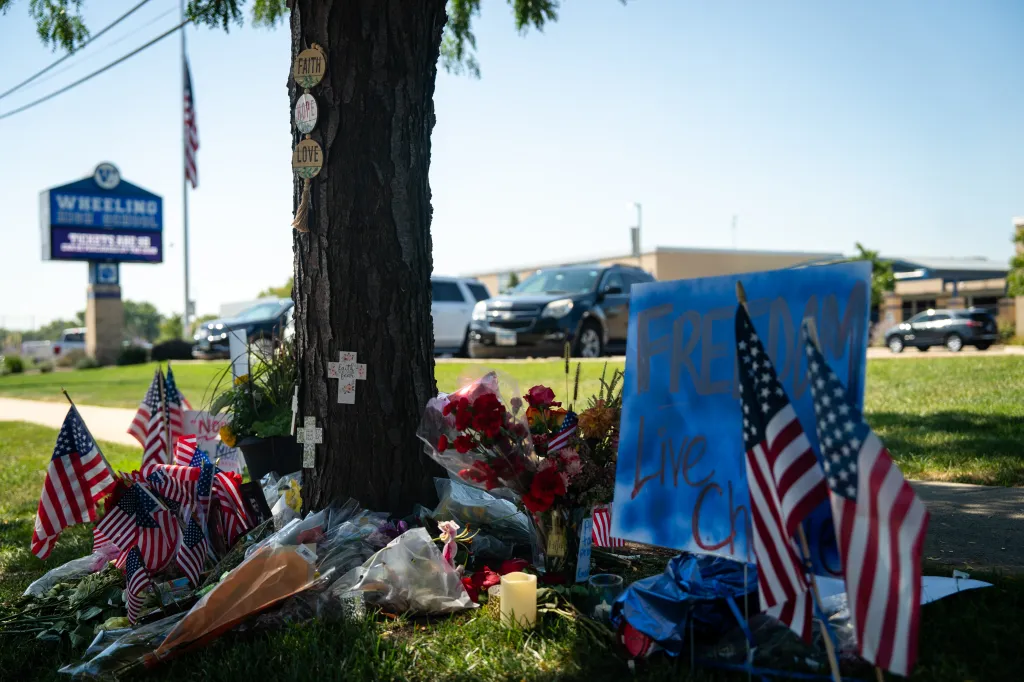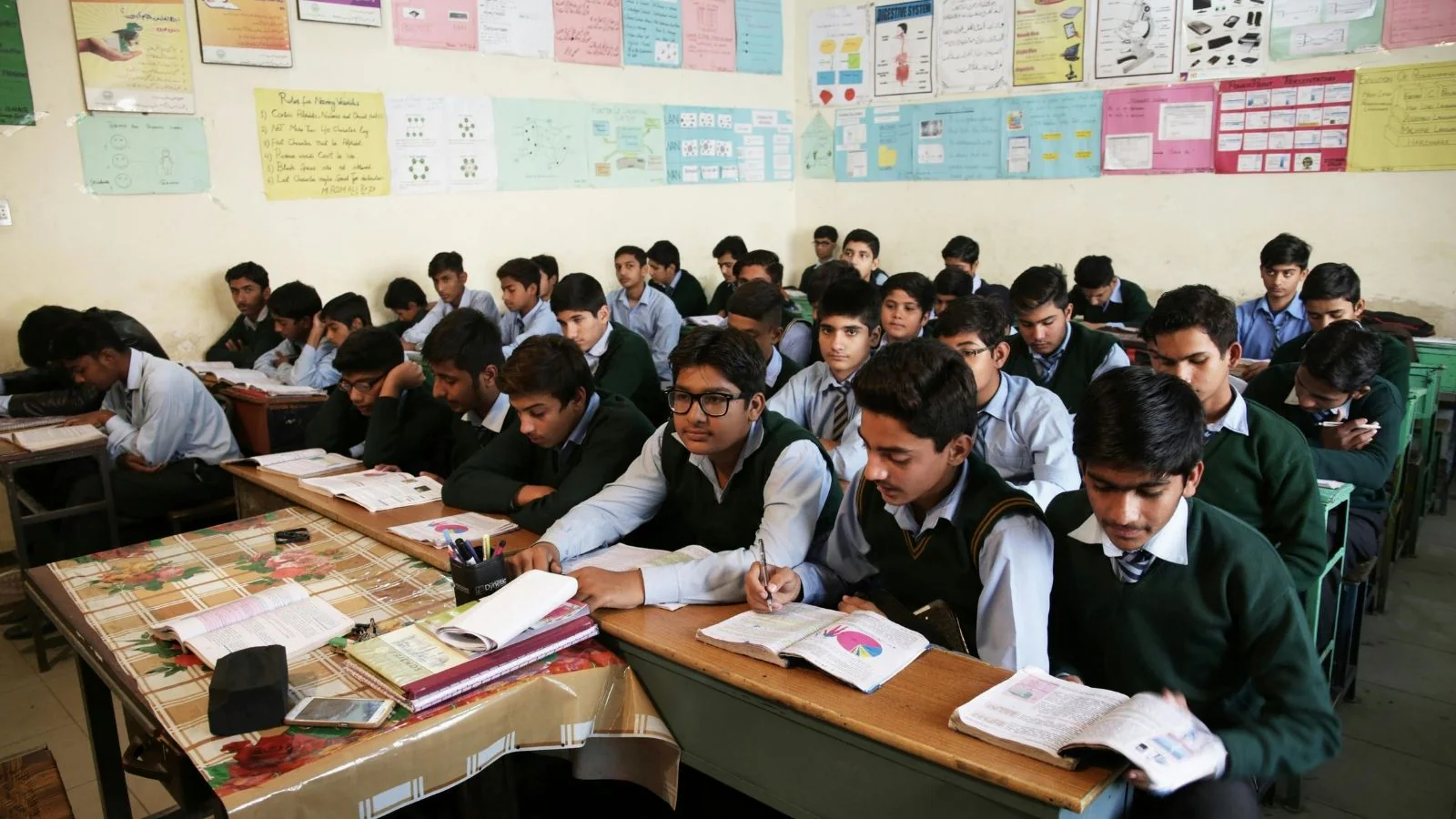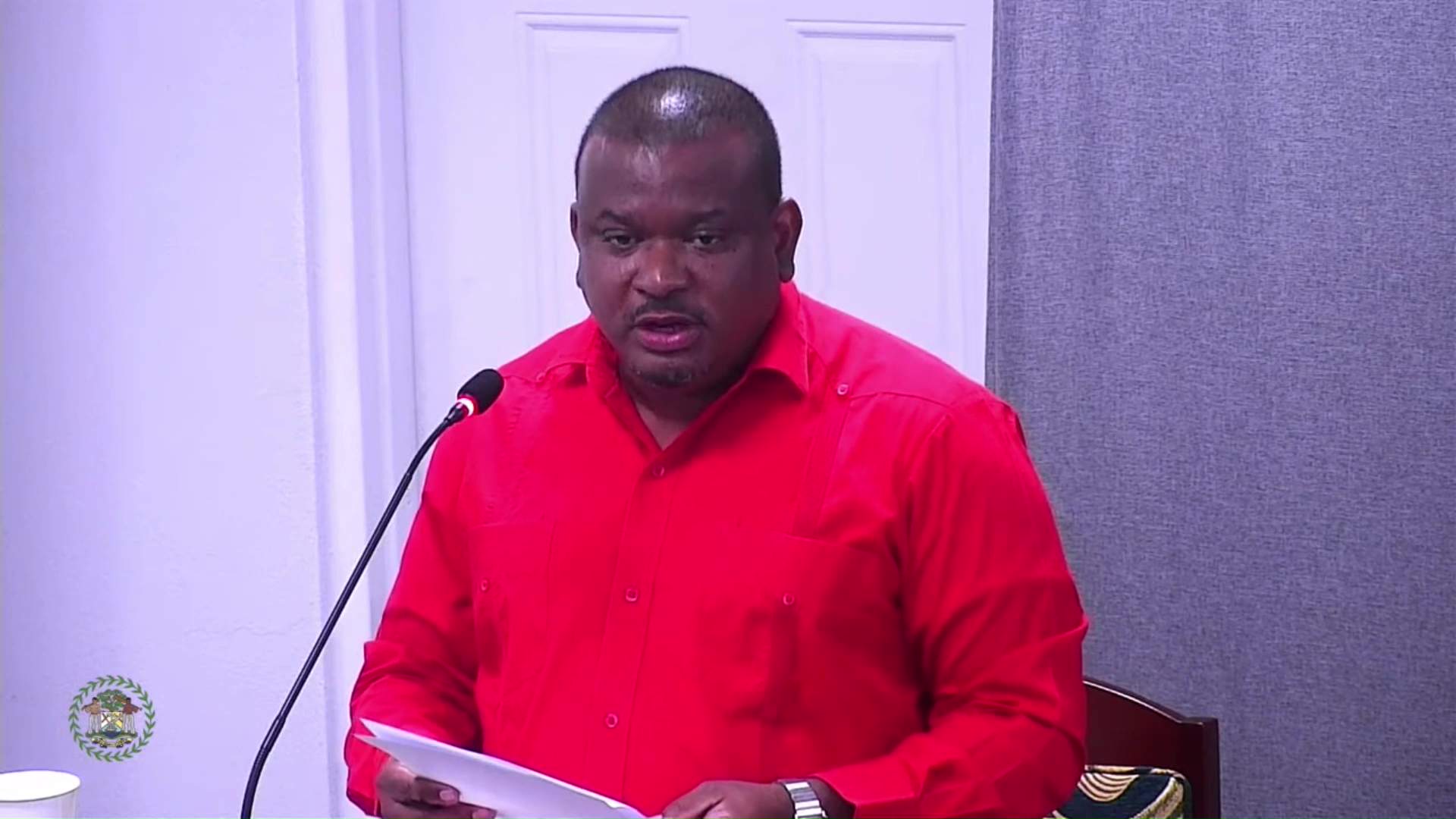
All 11 speakers during the public comment portion of the Sept. 22 school board meeting in Kentland, Indiana, were there to talk about the high school history teacher’s social media post.
After conservative activist Charlie Kirk had been assassinated, the teacher apparently wrote on social media: “(Expletive) Charlie Kirk and his rhetoric. That being said, we need to work together to do better.”
The post spread quickly through the town of 1,600 people, located southeast of Kankakee near the state line. Some of the meeting speakers praised her ability to make a “boring” subject interesting. One person noted the First Amendment applies to teachers the same as anyone else. Another person called what was happening “a modern-day witch hunt.”
Others, though, felt she no longer belonged in a classroom.
“My 13-year-old, who is learning more each day about this evil in the world, is forced to ask the question of whether or not a teacher she’s passed in the hall desired the murder of another human being. That’s extremely sad and I’m heartbroken,” said one parent, who later asked the board:
“Will we simply preach to our children the importance of their words and actions and how they will be held accountable for them, or are we willing to follow through and show them what accountability looks like even when it is difficult?”
A similar debate is being waged in communities across the country as scores of educators — several in Illinois and Indiana — are facing criticism over social media posts they made in response to Kirk’s Sept. 10 fatal shooting while at a campus speaking event at Utah Valley University.
In some cases, teachers have resigned or been fired amid mounting public pressure, doxing campaigns and threats by elected officials and education leaders in their respective states. It’s a striking reaction, especially given the many eulogies praising Kirk for his commitment to free speech.
The ensuing firestorm has extended beyond schools and universities to engulf employees in a variety of fields, from airline pilots and fire chiefs to nurses and late-night talk show hosts, revealing yet again the country’s deep political divisions.
To some, the backlash is a justifiable consequence of what they see as a celebration or tacit endorsement of political violence. Others view the resulting investigations and firings as a troubling infringement on free speech.
“That’s going to intimidate many Americans into silence,” said Aaron Terr, director of public advocacy for the Foundation for Individual Rights and Expression, better known as FIRE. “They get the message that if they say things, their careers can be ruined.”
‘Every American should be troubled by that’
About a dozen educators in Illinois have either been placed on leave or questioned by their employers over social media comments made about Kirk, said Daniel Montgomery, president of the Illinois Federation of Teachers.
None have lost their jobs, he said, noting that most are covered by union contracts that protect due process rights during investigations. Those contracts do not, of course, shield them from public scrutiny.
“Unfortunately, you’re in an environment where people are doing really crazy things,” he said. “We’re concerned about doxing, some misguided individuals trying to go after teachers. … Those are really troubling things. Every American should be troubled by that.”
The Lake County chapter of conservative group Moms for Liberty called for parents to pull their children from a Buffalo Grove middle school Spanish teacher’s class until she was fired over social media comments critical of Kirk and of efforts to honor him at his alma mater, Wheeling High School. One comment compared Kirk’s legions of followers to “young men in uniforms at a rally in the 30s.”
The teacher, who did not respond to an interview request for this story, previously told the Tribune that she felt that to honor Kirk would not align with the school’s values.
“No matter how you felt about the man, it is tragic for a 31-year-old with a young family to be killed,” she said earlier this month, “and instead of tearing each other apart about what anybody’s message is, the problem is the access to weapons.”
District officials did not respond to a message Friday seeking comment on the teacher’s employment. Her name still appeared on the school’s website as of Friday.
In Oak Forest, a high school English teacher was placed under investigation by Bremen High School District 228 in connection with a Facebook post in which she allegedly called Kirk’s assassination “the single best example of you reap what you sow.”
The teacher did not respond to an interview request for this story. District officials told the Daily Southtown that the teacher would not be let go, which caused one upset parent to tell the newspaper that the district appeared to be telling students “that expressing those kinds of sentiments endorsing political assassination is OK.”
An online petition of supporters, which as of Friday had just over 1,200 signers, called the teacher “a valued educator who has made a lasting impact on the lives of countless students.”
A similar sentiment was directed toward a high school English teacher in Columbia, Illinois. According to the Belleville News-Democrat, the teacher resigned after her social media posts, one of which included a partial quote from Kirk about empathy, circulated through the community of 11,000 near East St. Louis.
“I am shocked, saddened and embarrassed that members of our community have treated one of our best and most highly qualified teachers this way,” said one of the roughly dozen people who attended a Sept. 18 school board meeting in support of the teacher. “And I am absolutely stunned that you as a board would allow this.”
The Pickering balancing test
Six decades ago, a Will County high school teacher lost his job after he wrote a letter to a Lockport newspaper that criticized his school district’s attempts to issue bonds and raise taxes.
The teacher, Marvin PIckering, sued over his firing. The case eventually landed with the U.S. Supreme Court, which in 1968 decided that Pickering’s First Amendment right to free speech had been violated.
That case, Pickering v. Board of Education, established what legal scholars call the Pickering balancing test. Put simply: Public employees have the right to free speech when addressing matters of public concern and when they’re speaking as private citizens. But that right has to be weighed against the impact that speech has on its employers’ operation or on the employees’ ability to do their jobs.
Subsequent cases have further defined the criteria courts should use when applying that test, Terr said. Were employees speaking as part of their job duties? Were they fired to placate public anger?
“Having people across the country egged on by politicians and social media influencers to mob a school district to fire an employee because they disagree with an employee’s speech, that has not been a factor, according to several courts,” Terr said. “That fleeting public anger can’t be a justification for firing an employee.”
The Pickering balancing test was put to use last month when a federal appeals court ruled against Jeanne Hedgepeth, a former Palatine High School social studies teacher who sued to get her job back after she was fired following Facebook comments she made in the aftermath of the 2020 police killing of George Floyd and subsequent protests. The court ruled that the disruption caused by her comments outweighed her free speech rights.
‘Eyes on Education’
Government officials on the state and federal level have enthusiastically supported efforts to identify and punish anyone — educators included — deemed to be publicly celebrating Kirk’s killing.
Hosting Kirk’s podcast days after the assassination, Vice President JD Vance encouraged listeners: “When you see someone celebrating Charlie’s murder, call them out. And hell, call their employer.”
In Texas, the state’s education agency commissioner said he would recommend that the state educator certification board suspend the licenses of any teacher disciplined for Kirk comments, The Texas Tribune reported. Florida’s education commissioner pledged to investigate “every educator who engages in this vile, sanctionable behavior,” the Florida Phoenix reported.
Indiana Attorney General Todd Rokita recently announced that his office’s “Eyes on Education” online portal — built to accept public reports of “objectionable curricula, policies, or programs affecting children” — had received hundreds of public submissions about Kirk-related posts by Indiana educators.
“Freedom of speech is a cornerstone of our Republic, but it does not shield individuals from the consequences of their words, especially when they are public servants who are getting paid with taxpayer dollars,” Rokita said in the release. “Statements that celebrate or glorify violence are deeply concerning, particularly when made by those entrusted with shaping young minds. Our office is committed to transparency by sharing verified submissions on the Eyes on Education portal, where many examples are already available.”
As of Friday, the site listed the names of 26 public school or university employees, along with their alleged social media posts and the names and contact information of their employers.
Among the names listed are two Indiana University law professors, a student health and wellness staffer at Notre Dame University, and an administrator at Ball State University in Muncie, Indiana, who has sued the university over her firing, ABC News reported. It also includes a LaPorte County middle school teacher and a Valparaiso high school English teacher — both of whom resigned.
The high school history teacher in Kentland, Indiana, is also on the list. School officials did not respond to a message Friday seeking comment on her employment, though her name still appeared on the school’s website as of Friday.
To some, Rokita’s list is akin to the “Professor Watchlist” launched a decade ago by the organization Kirk co-founded, Turning Point USA. The goal of that list, according to the site, is “to expose and document college professors who discriminate against conservative students and advance leftist propaganda in the classroom.”
Earlier this month, WBEZ reported that the list contained close to 50 educators from Illinois, some of whom told the outlet they had received hateful messages and threats of violence.
That a government entity like the Indiana attorney general’s office would create such a list is “deeply disconcerting,” said Mark Criley, a senior program officer in the American Association of University Professors’ academic freedom and governance department.
Montgomery with the Illinois teachers federation had harsher words for Rokita’s list.
“It’s terrible,” he said, comparing it to McCarthyism. “I see that as a very serious attempt to curtail freedom of thought and the freedom of children to learn, frankly. I would hope most Indiana residents don’t tolerate that.”



